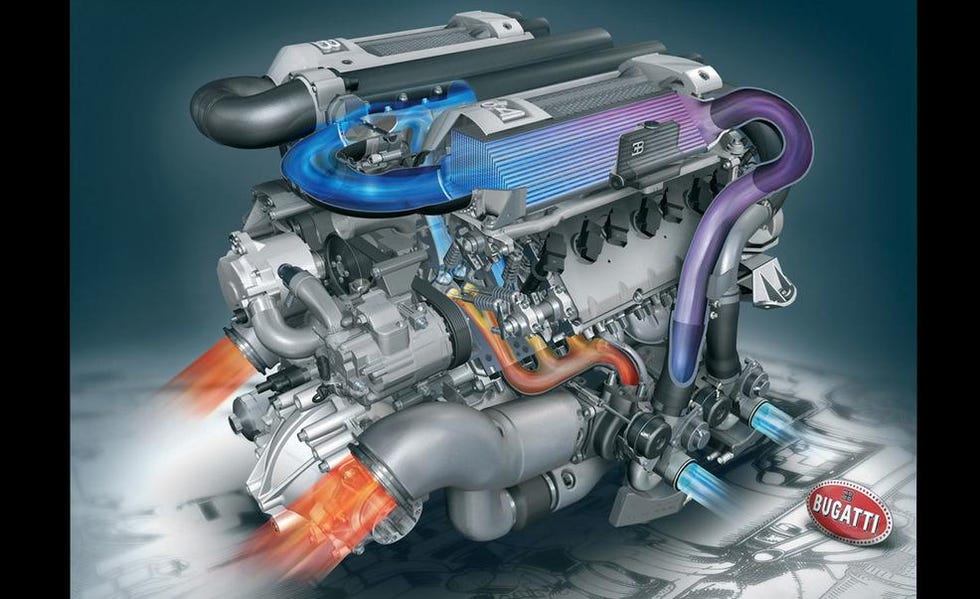A Total Overview to Selecting the Right Engine for Your Task
Selecting the ideal engine for your project is a critical decision that can dramatically impact its general success. It is essential to thoroughly specify your project needs, assess efficiency demands, and take into consideration user-friendliness alongside other necessary factors. Additionally, comprehending the neighborhood assistance readily available and looking at cost implications can additionally improve your selection. Each of these elements plays a critical function in making sure that your selected engine not only meets immediate purposes but also aligns with long-lasting goals. As we check out these considerations, you may find that the nuances of each aspect reveal greater than originally prepared for.
Specify Your Job Requirements
Defining your task requires is an important action in choosing the suitable engine for successful application. An extensive understanding of your task's goals will certainly assist you in determining the attributes and abilities needed from an engine. Begin by describing the scope of your task, including the preferred performance, target market, and the particular end results you aim to attain.
Next, take into consideration the technical needs that align with your job objectives. This includes reviewing the compatibility of the engine with existing systems, in addition to the programs languages and structures that will be made use of. Additionally, examine the degree of scalability required to fit future development or changes in need.
Spending plan constraints likewise play a vital role in defining your task requires. Establish a clear monetary structure to lead your decision-making process, making certain that the engine selected fits within your budget while supplying the needed functionality.
Evaluate Performance Needs

Following, consider the scalability of the engine. Evaluate whether it can deal with boosted work as your job expands. Engines that sustain straight scaling are usually more suitable for larger applications. Additionally, assess the engine's performance under different problems, such as peak use situations, to guarantee it fulfills your integrity criteria.
Consider Ease of Usage
While technological specs are necessary, the simplicity of use of an engine can considerably impact the growth procedure and overall project success. An instinctive user interface, clear paperwork, and streamlined operations can drastically lower the discovering curve for developers, allowing them to focus on creativity and analytic rather than grappling with facility tools.
When reviewing an engine's convenience of use, consider the onboarding experience. A well-structured intro, total with tutorials and example jobs, can facilitate a smoother shift for new individuals. Additionally, the quality and comprehensiveness of the engine's paperwork play a crucial duty; extensive overviews and API recommendations can encourage designers to fix and implement attributes efficiently.
An additional aspect to think about is the engine's customization abilities. An engine that permits easy alterations can be more easy to use, as programmers can tailor it to fit their certain needs without substantial hassle. Finally, analyze the workflow combination with Learn More Here devices and platforms you currently make use of. A natural ecological community can boost efficiency and decrease friction during the growth process. Ultimately, choosing an engine that focuses on simplicity of usage can result in an extra enjoyable and productive development experience.
Assess Area and Support
The strength of an engine's neighborhood and assistance network can substantially influence a designer's experience and success. When assessing an engine, consider the size and task degree of its community.
Additionally, review the schedule of official assistance networks. Dependable documents, receptive consumer support, and normal updates are necessary for addressing technical concerns and maintaining your job on the right track. Engines For Africa. Active areas likewise foster cooperation, providing opportunities for networking and feedback, which can be invaluable, especially for tiny groups or independent developers
Furthermore, examine the presence of community-run occasions, such as meetups or hackathons. These events can improve your understanding of the engine while connecting you with Your Domain Name possible partners and seasoned users. In recap, a durable community and support group not only simplify advancement yet also develop an environment learn this here now favorable to discovering and development, inevitably boosting the chance of your task's success.
Contrast Expense and Licensing Options
Spending plan factors to consider play an important function in picking the best engine for your job, as the price and licensing alternatives can dramatically affect both temporary costs and long-lasting viability. Engines For Africa. Various engines supply varying pricing frameworks, which can consist of one-time purchase charges, membership models, or revenue-sharing arrangements based on your task's earnings

Licensing alternatives additionally vary dramatically. Some engines are open-source, offering adaptability and community-driven support, while others may require proprietary licenses that restrict usage and circulation. Recognizing the effects of each licensing model is vital, as it affects possession rights, future scalability, and prospective lawful obligations.
Conclusion
To conclude, selecting the appropriate engine for a task necessitates a thorough analysis of defined task needs, efficiency needs, ease of usage, community assistance, and cost factors to consider. By systematically resolving these important elements, decision-makers can make sure positioning with both future and present job demands. An educated choice inevitably boosts the likelihood of task success, enabling effective resource allowance and making the most of prospective end results within the defined monetary restrictions.
Picking the suitable engine for your project is an important choice that can dramatically influence its overall success.Defining your project requires is a critical step in selecting the appropriate engine for successful execution. A detailed understanding of your job's goals will certainly assist you in determining the capacities and functions needed from an engine.When you have a clear understanding of your job needs, the next step is to review the performance needs of the engine.In conclusion, selecting the appropriate engine for a project requires a detailed analysis of defined job demands, efficiency demands, ease of use, community assistance, and price factors to consider.